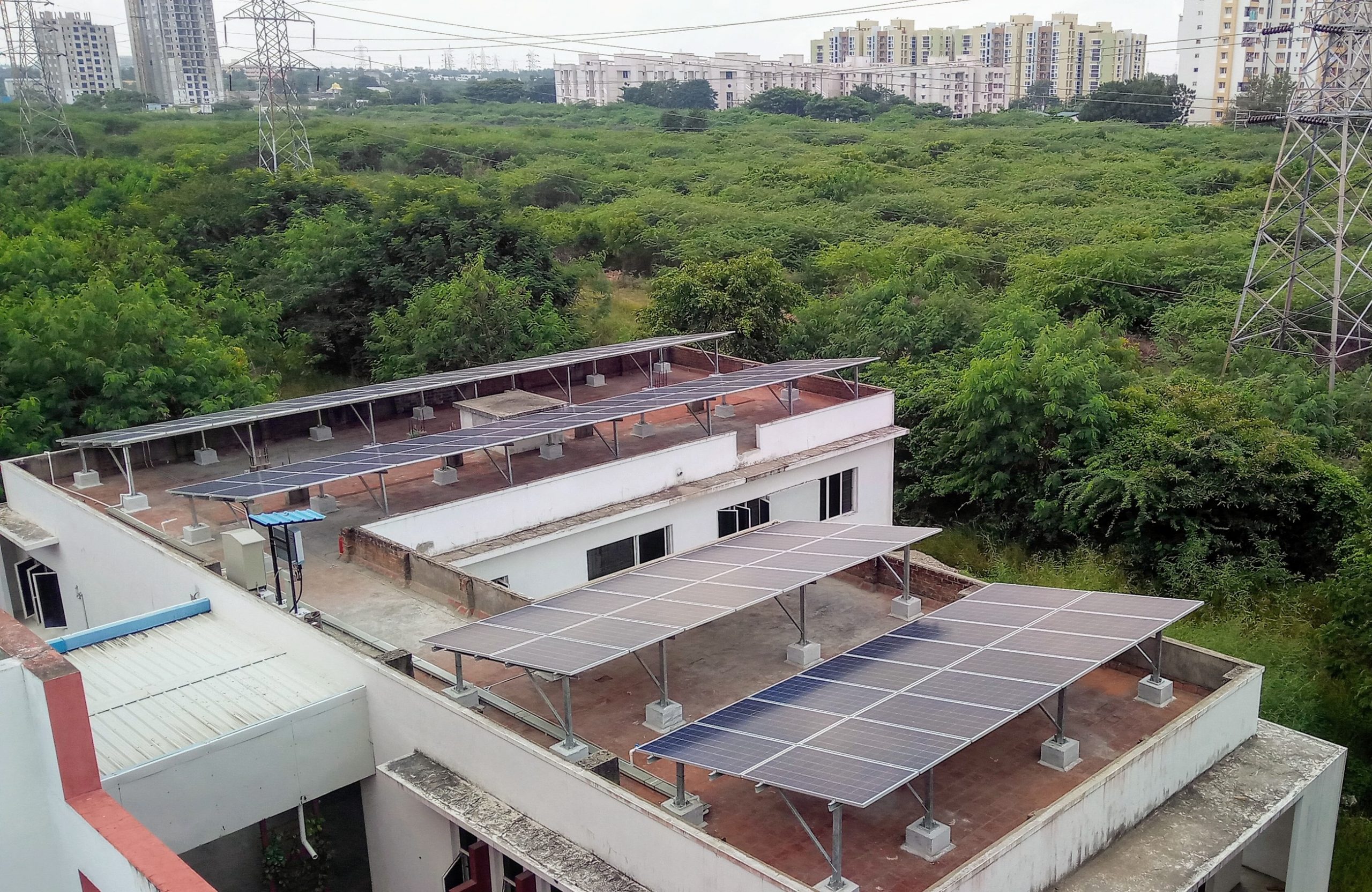Investment from the University of Dundee is helping to reduce the environmental and financial cost of carrying out vital medical research.
Funding of around £75,000 has been provided to install high-powered solar panels at the Madras Diabetes Research Foundation (MDRF) research facility in Siruseri, India.
The centre contains a Biobank which stores the samples necessary for MDRF’s research programmes, including INSPIRED, a £7 million Dundee-led project that seeks to improve diabetes outcomes in India.
The Biobank requires a reliable electrical supply 24 hours per day to ensure the samples are stored safely. Over 50% of the electrical power consumption at the research facility is by the Biobank. Installation of the solar panels will ensure that there is always power available.
INSPIRED is funded by the National Institute of Health Research Global Health programme, which supports high-quality applied health research for the direct and primary benefit of people in low and middle-income countries (LMICs). Providing sustainable improvements for LMICs is a key requirement of funding.
It is estimated that the solar panels will save the facility approximately £12,100 per year. After the costs of installation have been recovered, this will provide an estimated net saving of £216,000 over 24 years whilst also significantly reducing its carbon footprint.
Dr Fred Comerford, NIHR-Global Health on Diabetes Outcomes Research Unit Manager at Dundee, said: “Through this funding, we are demonstrating that the University, through this NIHR funding, is both supporting research capacity in LMICs and promoting and investing in green solutions.
“One of the central principles of NIHR’s Global Health Research programme is to provide a lasting benefit for the low to middle income countries and communities they work with, long after the end of the research project.
This is not limited to the outputs from the research but is also achieved by increasing local capacity for future research through delivering training, and through the improvement of infrastructure and facilities within the LMIC partner’s organisation.

“MDRF is a non-profit organisation that depends largely on private donors and government research support. It is dedicated to improving the understanding and management of diabetes in the Indian population, and the solar panels will bring a long-term financial benefit to the organisation.”
“We are grateful for the impact that the solar panels donated by University of Dundee has made at our research facility,” said Dr Viswanathan Mohan, Founder and President of the Madras Diabetes Research Foundation, Chennai.
“These solar panels significantly contribute to our sustainability goals. With a renewable source of energy, we will cut energy use and direct those funds to pursuing promising and exciting research.”
In 2017, the University of Dundee was awarded a £7 million grant from the National Institute of Health Research Global Health programme to establish INSPIRED, a major new Scotland-India clinical partnership to combat diabetes.
The NIHR Global Health Research programme supports high-quality applied health research for the direct and primary benefit of people in low and middle-income countries using Official Development Assistance (ODA) funding.
INSPIRED sees Dundee’s world leading expertise in the use of medical records to deliver improved care in diabetes ‘twinned’ with the large patient data set (covering over 400,000 Indian diabetic patients) collected by Dr Mohan’s Diabetes Specialities Centres, the largest clinical network of diabetes care in India.